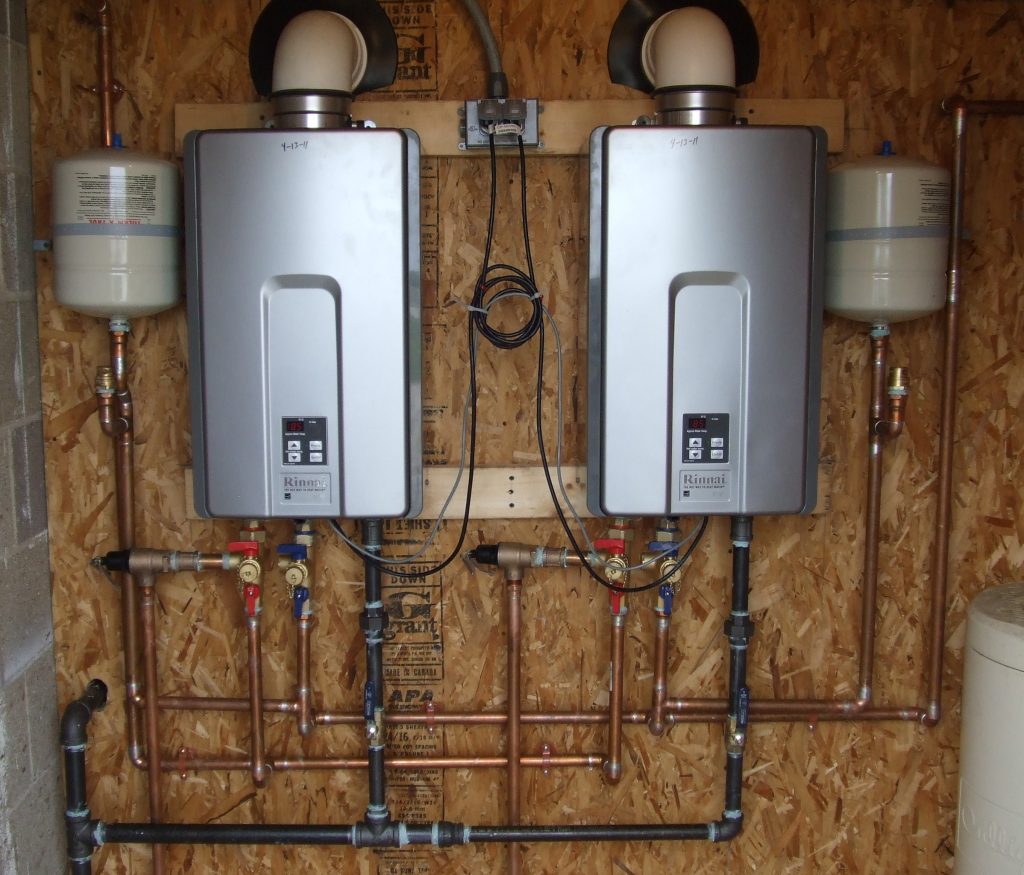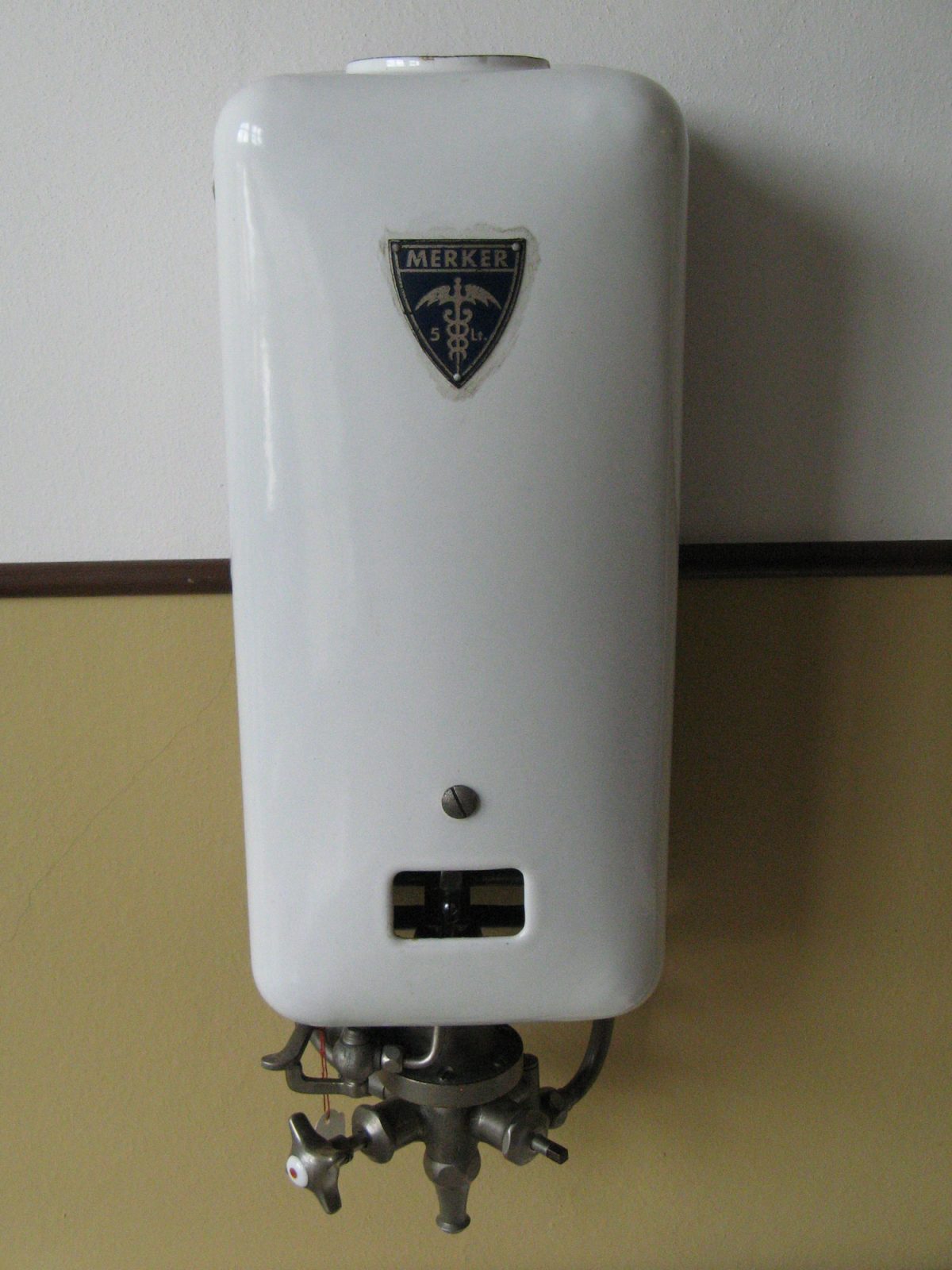Summary
– Propane water heaters: choice of propane gas
– The two types of propane gas water heaters
– Hybrid propane water heaters
– Propane water heater prices
The propane gas water heater is a heat generator intended to produce domestic hot water at any time, without the help of a boiler.
Propane water heater: choice of propane gas
With a gross calorific value of 13.83 kWh/kg, propane gas is at the forefront of conventional fuels in terms of efficiency:
– 13.72/kg for butane;
– 11.45/m³ for natural gas;
– 10.74/l for fuel oil;
– 9.95/kg for coal;
– 5,46/kg for wood.
It is not very sensitive to frost (- 44 °C, compared to 0 °C for butane or – 5 °C for fuel oil). It burns without smoke and produces 25% fewer greenhouse gases (CO²) than fuel oil, 45% less than coal, and makes few fine particles. It is available everywhere in the country and can be used discreetly (underground tanks).
Note: propane gas allows you to take advantage of fuel gas’s performance and flexibility in areas not served by the natural gas network (formerly city gas).
The two types of propane gas water heaters
All gas-fired DHW appliances operate on the same principle: the water or heat transfer fluid is charged with calories by passing through a heat exchanger (often a simple coil) located in the flue gas outlet of the gas burner.
Suspended on the wall or placed on the floor, it can be equipped with a traditional chimney or direct passage through an external wall (suction cup).
Instantaneous propane water heater
In the instantaneous water heater, the burner ignition is automatically controlled by opening a tap. At no time is hot water stored.
The disadvantages of the system are unfortunately there:
– Latency time before the hot water supply;
– Limited hot water flow rate (6 to 10 liters/minute for a burner with a consumption of less than 10 kW);
– Not always hot water at a very low flow rate;
– Temperature is often subject to variations (especially when mixing with cold water or opening another faucet).
To be comfortable and economical, you must install the appliance as close as possible to the tap. The single-point water heater is ideally located directly above the sink and has a built-in mixer.
However, there are some significant advantages:
– Unlimited volume of hot water available;
– No energy waste (consumption strictly limited to needs);
– Less risk of scaling;
– Less energy consuming than its electric counterpart;
– More environmentally friendly;
– Not necessarily an electrical connection (electronic battery ignition);
– Compact device with a small footprint.
Instantaneous propane water heaters are best suited for intermittent or occasional use, sites that do not use large amounts of hot water in a short period, or single tap points.
Storage Propane Water Heaters
The propane water heater stores a quantity of hot water determined by its storage tank’s capacity.
The disadvantages of this system are as follows:
– Limited amount of hot water available;
– Relatively long time for the water to warm up (between 3 and 5 hours depending on the burner power and capacity), but shorter than with electricity;
– Higher energy consumption than with instantaneous water heaters, despite better efficiency (permanently heated water + thermal leaks despite the insulation of the tank);
– Tank subject to rapid scaling above 60°C.
Its advantages, on the other hand:
– High flow rate, ideal for rapid filling of bathtubs and large containers;
– Simultaneous tapping of several taps without temperature or flow variation;
– Guaranteed hot water, even at low flow rates.
The propane gas water heater is preferable for large centralized installations and intensive use (large families, communities, etc.).
Hybrid propane water heaters

Recently, manufacturers have been developing hybrid devices, attempting to combine some of the two primary systems’ features. Neither instantaneous nor accumulator, they are equipped with a large heat exchanger to quickly heat a small capacity accumulation tank (10 to 30 liters).
Gas consumption is optimized by adopting a burner whose power varies progressively, between 50 and 100%, to limit energy expenditure in case of moderate use. An electronic regulation automatically controls the water flow rate and temperature. This promising system, designed for medium-sized installations (3 drawing points), has yet to prove its efficiency and reliability.
Propane water heater prices
Depending on the capacity, the degree of technical sophistication, the materials used, the brand or the retailer, the price of a wall-mounted propane water heater, excluding installation, varies between $150 and $800. Count between $500 and $1,500 for a floor-mounted water heater.
You can read more here:

